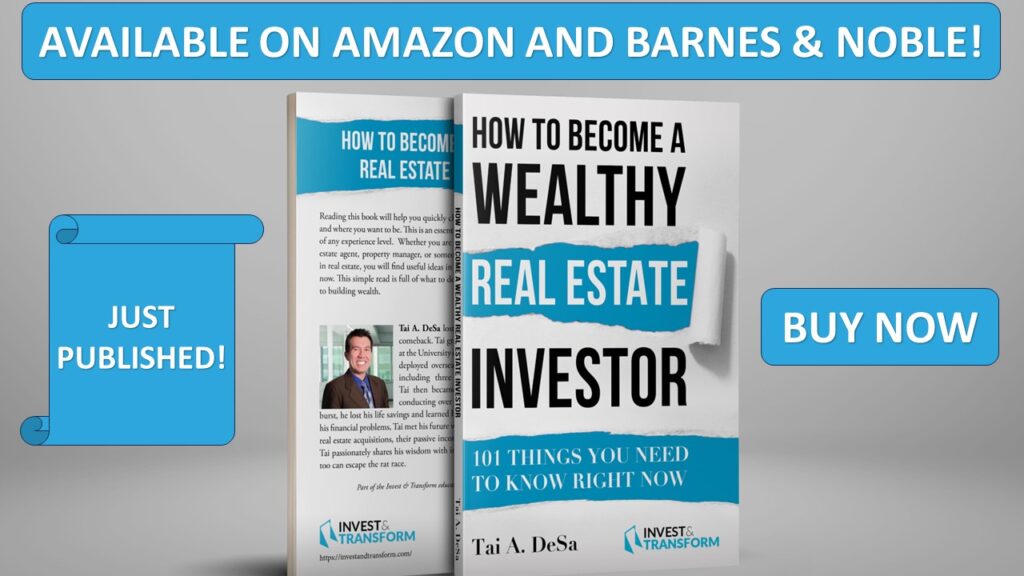
12 Apr The Formula for Flipping a House
Some amateur house flippers believe that all you have to do is buy a fixer-upper, renovate it, and then it’ll easily sell for a hefty profit. That’s not always the case. You could pay too much, get in over your head on the renovation, take too long to fix it, set the asking price too high and have it sit on the market, or get busted for not pulling the proper permits.
Flipping can be a relatively predictable business, provided that you follow a basic formula. It’s known as the 70% Rule.
After Repair Value – 30% Profit Margin – Renovation Costs = Maximum Allowable Offer Price
Let’s say you’re looking at a property listed at $200,000. The ARV is $300,000. Your projected renovation costs are $40,000. Therefore, your MAO price is $170,000 ($300,000 – $90,000 – $40,000 = $170,000). You could offer up to $170,000 for that property. In many situations, f0llowing the 70% Rule keeps you safe. Even if there are unexpected challenges, you should still come out with a modest profit.
There are some flaws with the 70% Rule. It doesn’t factor in closing costs (when you buy and when you sell), financing costs (lender fees and interest), carrying costs (insurance, taxes, and utilities), and real estate agent commission. So let’s refine the flipper’s formula.
After Repair Value – 30% Profit Margin – Renovation Costs – Closing Costs – Financing Costs – Carrying Costs – Realty Commission = Maximum Allowable Offer Price
What do you put down for closing costs, financing costs, carrying costs, and commission? Closing costs are fairly predictable. You can ask your title agent or real estate agent to help calculate those fees. Financing costs are also predictable. Your mortgage lender can compute fees and monthly interest costs. You can project the number of months you’ll own the property. Carrying costs could be fairly predictable too. You can work out the commission with your real estate agent.
There are some rule of thumb numbers I use for closing costs, carrying costs, and commission. I use 3% of the ARV for closing and carrying costs combined (assuming that I’m owning the property for less than six months) and 6% commission for the listing agent. So that’s a total of 9% for closing, carrying, and commission costs.
Let’s look at the same example above with the house listed at $200,000 with an ARV of $300,000 and renovation costs of $40,000. Let’s assume the financing costs are $8,000.
The MAO price is $135,000 ($300,000 – $90,000 profit margin – $40,000 renovation costs – $27,000 closing/carrying/commission costs – $8,000 financing costs).
Now you may say, “How can I possibly buy a property for $135,000 if the asking price is $200,000?!” Getting that type of discount is typically a challenge, especially in a Seller’s Market where inventory is low and prices are rising. Some flippers relax their 30% Profit Margin standard in a Seller’s Market. For example, they might go with 25%. Their belief is that it is better to make a profit than do nothing. You’re the CEO of your own business, so you get to decide what standards to use.
Don’t deviate too far from your standard or you will find yourself losing money. I’ve been there. Many years ago, I bought several properties based upon optimism, hubris, and a relaxation of my standards. I paid a hefty price in losses and stress.
Focus on generating deal flow. Deal flow is essentially getting lots of potential properties to consider. You want multiple sources for deals. The more opportunities you filter through, the more you’ll find lucrative buys.
Tai DeSa is a graduate of The Wharton School of the University of Pennsylvania. He became a full-time real estate investor in 2004 after serving in the U.S. Navy. Tai made colossal mistakes in investing (and learned some things along the way). Tai has coached hundreds of entrepreneurs, real estate investors, and real estate agents on how to increase their income and net worth. He has helped hundreds of homeowners avoid foreclosure through successful short sales. Check out Tai’s books on Amazon.com. Tai may be available for coaching and speaking engagements on a variety of real estate topics. Send an email to tai@investandtransform.com.







No Comments